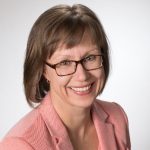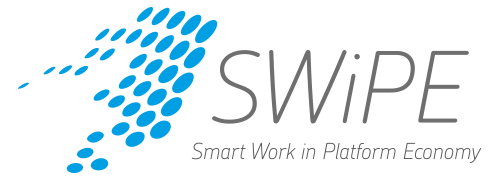 Annina Ropponen is a Senior Researcher at the Finnish Institute of Occupational Health. She is also a Docent of public health at the University of Helsinki. She has previously held posts as a visiting researcher at Karolinska Institutet in Stockholm and as an Assistant Professor at the University of Kuopio. Annina Ropponen has been a researcher and leader in several research and development projects. Her areas of interest include flexible work and flexible working time. In addition, Annina’s occupational health background contributes a worker and welfare-centric perspective to SWiPE.
Annina Ropponen is a Senior Researcher at the Finnish Institute of Occupational Health. She is also a Docent of public health at the University of Helsinki. She has previously held posts as a visiting researcher at Karolinska Institutet in Stockholm and as an Assistant Professor at the University of Kuopio. Annina Ropponen has been a researcher and leader in several research and development projects. Her areas of interest include flexible work and flexible working time. In addition, Annina’s occupational health background contributes a worker and welfare-centric perspective to SWiPE.
What are your strengths as a SWiPE researcher?
“At the heart of my career as a researcher are broad population datasets where questionnaire data has been combined with public records data on, for example, socioeconomic factors, health related absences and disability pensions. I have been able to use these and similar datasets in Finland and Sweden, working in the universities of Jyväskylä, Eastern Finland/Kuopio and Helsinki as well as at Karolinska Institutet in Stockholm. I have been based at the Finnish institute of Occupational Health for the past four years leaning about working time research, but have also put to use my expertise in register datasets and epidemiology. I find that working time research – which to some will sound like a relic from the industrial age – is a very relevant also in the platform economy. My strengths lie in my belief that SWiPE will enable new ways to look at working time and that it will be an important tool in SWiPE research. I am also open-minded, a go-getter and always willing to work hard – in addition to being positive, quick-witted and adventurous.”
What topics would you like to see discussed because of SWiPE research?
“SWiPE will bring up new ways to do work, to identify sources of income and logics of making a living. Also, SWiPE will help society understand the role and value of working and earning a living for both workers and employers. In addition, it is important to have a conversation about how these are conceptualised and how we might assess the impact of new forms of working on the health and wellbeing of individuals and communities.”

